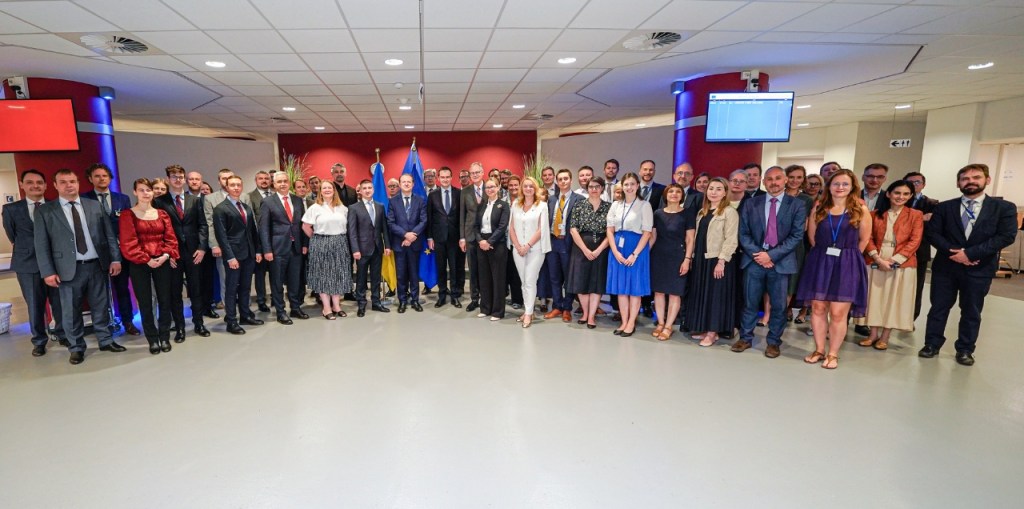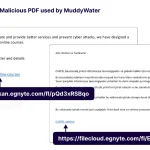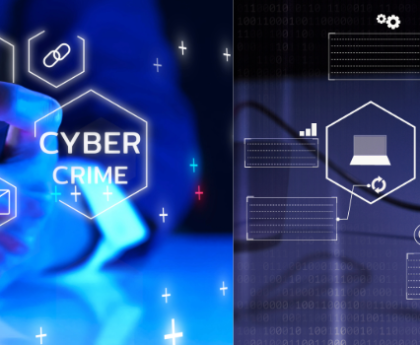With Ukraine embroiled in a brutal war and formally seeking EU membership, the recent EU-Ukraine Cyber Dialogue in Brussels signaled a critical shift – cybersecurity is no longer just a technical concern, it’s a cornerstone of national security and geopolitical strategy.
The 3rd EU-Ukraine Cyber Dialogue that took place on Monday yielded a multi-pronged approach. Both parties reaffirmed their commitment to responsible state behavior in cyberspace, a crucial step in deterring future cyberattacks. Collaboration on cyber diplomacy in international forums will further amplify their voices and shape global norms.
Harmonizing EU and Ukraine Cybersecurity Frameworks, Sharing
Recognizing the evolving threat landscape, the EU and Ukraine will work together to harmonize their cybersecurity frameworks. Ukraine will align its legislation with the EU’s Network and Information Security (NIS) 2 Directive, strengthening critical infrastructure and supply chain resilience. This harmonization, however, goes beyond technicalities. It fosters a unified approach to cyber defense, making it harder for attackers to exploit vulnerabilities across borders.
The dialogue wasn’t merely theoretical. The EU and Ukraine agreed to enhance information sharing on cyber threats, risks, and crisis management. This improved situational awareness will aid in understanding the cyber landscape in real-time and be crucial in countering ongoing and future Russian cyberattacks.
The EU’s commitment to Ukraine’s cyber resilience is unwavering. The union has pledged continued support through initiatives like “CyberEast” and collaboration with member states through the Tallinn Mechanism, a platform for coordinating cyber defense efforts.
Looking ahead, Ukraine may leverage the EU Cybersecurity Reserve, a pool of cybersecurity experts readily deployable in crisis situations. Additionally, the European Security and Defence College, EUAM Ukraine (European Union Advisory Mission), and EUMAM Ukraine (EU Military Assistance Mission) will provide targeted training for Ukrainian civilian and military personnel.
The existing working arrangement with ENISA, the EU’s cybersecurity agency, and operational agreement with Europol will continue to facilitate close cooperation between relevant authorities. This structured collaboration ensures a swift and coordinated response to cyber threats.
U.S.-Ukraine Bilateral Cybersecurity Partnership
Last month, a similar extension of a cybersecurity partnership between Washington and Kyiv was announced. The 10-year bilateral security agreement provides a framework for continued U.S. support for Ukraine’s defense and deterrence capabilities, as well as for Ukraine’s economic recovery and reconstruction.
One of the key components of the Security Agreement signed by U.S. President Joe Biden and Ukrainian President Volodymyr Zelensky is cybersecurity and critical infrastructure protection.
Biden committed to support Ukraine’s capacity to increase the cybersecurity and protection of its critical infrastructure and government information resources, including by strengthening its cyber defenses against malicious cyber activities by Russia and other hostile state and non-state actors.
“Both sides commit to work together to improve Ukraine’s ability to detect and remediate intrusions by malicious actors, including through technical assistance from the United States,” the Security Agreement said. “The United States intends to assist Ukraine to improve the cyber resilience of its critical infrastructure, especially energy facilities, against aerial strikes, and to support the quick restoration of destroyed infrastructure, including by providing material and technical assistance.”
Related
This post was originally published on the 3rd party site mentioned in the title of this this site





